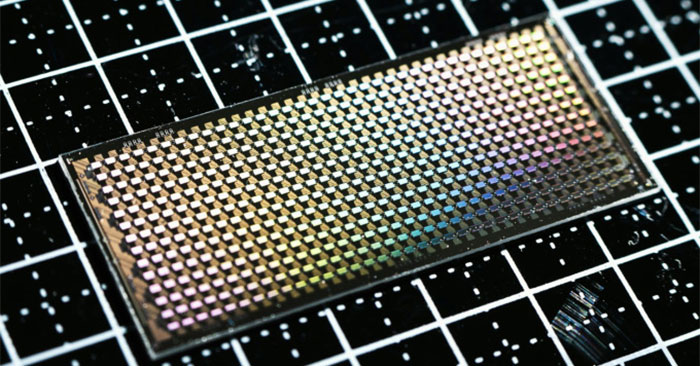China's largest quantum computing chip allows access to researchers around the world
Scientists from the Chinese Academy of Sciences (CAS) have developed Xiaohong, the largest quantum computing chip built by the country to date with 504 qubits, expected to enable researchers around the world to access limit.
Xiaohong is designed to upgrade systems that manage the interaction and operation of quantum bits (qubits) in quantum computers.

Scientists hope this chip will help improve quantum computers so they can handle more complex tasks.
The 504-qubit Xiaohong chip will be delivered to Chinese quantum computing company QuantumCTek first. The company will then cooperate with China Quantum Telecommunications Group to integrate the chip into a new quantum computer.
This system will allow researchers in many fields around the world to access a quantum computing cloud platform of China Quantum Telecommunications Group to study problems and algorithms. has practical value in an effective way, while accelerating the application of quantum computing to real situations.
Similar to those produced by IBM or AWS, Xiaohong is also designed to meet the performance standards of cloud-based quantum computing platforms. But China's quantum chip is not aiming to become a technological rival to cutting-edge American chips, but scientists hope accessing Xiaohong through the cloud will advance computing measurement and control systems. quantum large-scale (QCMCS) developments.
QCMCS is a bridge that connects traditional computers with quantum computers, allowing quantum computers to interpret commands received from a classical computing environment and manage the qubit state accordingly.
Quantum computers operate differently from classical computers in that bits can only be expressed as 0 or 1, while qubits can exist in many states at the same time to be able to perform calculations in parallel at high speed. It's hard to believe if the qubits are put together through quantum entanglement.
You should read it
- ★ New chip technology can enhance quantum computing
- ★ Quantum computing - a marathon, not a sprint contest!
- ★ Intel challenged IBM and Google with supercomputers with 250 times cooler temperatures than the universe
- ★ Quantum computing - the future of humanity
- ★ Join Microsoft's free Quantum computing course today